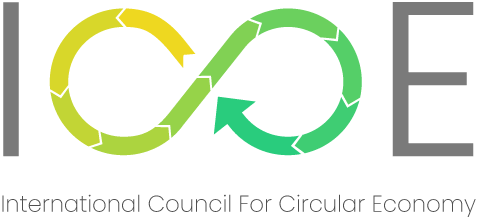Achievements in Sustainability
Solvay is a science firm whose inventions help people in a variety of ways. In a world with an ever-increasing population and a growing demand for resources, the company aspires to be the catalyst for the next innovations that will allow humankind to progress while safeguarding the planet we all inhabit. Founded in 1863, the group’s innovative and creative ideas promote safer, cleaner and sustainable products for home and other human needs.
Through its “one planet” initiative the institution works towards combining innovations and sustainability and hence works in line with the objectives of Sustainable Development Goals of the United Nations and for the purpose ‘climate, resource and better life’ becomes the company’s roadmap.
Solvay one planet has been putting efforts to reduce emissions worldwide. Solvay became one of the first chemical companies to decouple its development from greenhouse gas emissions in 2018. For every metric ton of CO2, the company applies an internal carbon price of €50. The company commits to eliminate the installation of coal-powered plants by 2030. The aim is to cut greenhouse gas emissions by 26% and thereby double the rate of reduction. In its plant in Linne Herten, Netherlands, the company has started installing hectares of solar panels and by August 2021 with the solar farm becoming fully operational 40% of the plant’s electricity requirements will be met and thereby reducing the related CO2 emission by nearly 17%.
Solvay has designs on protecting our resources by shifting towards a more circular operation model by 2030. The company has partnered with the Ellen MacArthur Foundation to expedite a transition towards the circular economy. The company’s goal is to reduce its non-recoverable waste by 1/3rd and to increase by more than double the sales of products based on renewable and recycled resources to 15% of turnover. Solvay has pledged to reduce its impact on water resources by reducing its freshwater by 25%. To encourage recycling and to expand the circular economy, Solvay has started testing blockchain technology to monitor its products throughout the value chain. Solvay focuses on Circular operations, that is, to minimize waste generation and recycle waste as much as possible; Circular sourcing, that is, to maximize the sales of renewable and recycled resources based products; and Circular business by offering circular solutions to customers and to include circular practices in their activities. Solvay has started the Chemchain platform so that the customers and the textile manufacturing companies would have proper knowledge about the material used; that is, if they are recycled, biodegradable and their origin etc. For the great majority of its operations, the Solvay Group is among the top three firms in the world.
- In a society with ever-expanding population size and an ever-increasing demand for resources, the Solvay strives to be the driving force behind the next breakthroughs and innovations that will allow humanity to progress while protecting the planet.
- Via its “one planet” program, the establishment aims to combine innovation and sustainability, and thus to work in accordance with the United Nations’ Sustainable Development Goals.
- In 2018, Solvay was among the first chemical companies to decouple its growth from carbon emissions.
- An internal carbon price of €50 is applied to each metric tonne of CO2 released by the plants of Solvay. By 2030, the industry pledges to stop building coal-fired power plants. The goal is to reduce greenhouse gas emissions by 26%, more than doubling the current rate of reduction.
- Solvay has begun constructing hectares of solar panels at its plant in Linne Herten, Netherlands, and by August 2021, 40 percent of the factory’s electrical requirements will be satisfied, lowering CO2 emissions by approximately 17 percent.
- Solvay is working with the Ellen MacArthur Foundation to help boost the transition to a circular economy.
- Solvay’s goal is to minimize non-recoverable waste by a third and raise sales of renewable and recycled products to 15% of total sales. The company also aims to reduce its pressure on water resources by cutting its freshwater intake by 25%.
- Solvay has successfully introduced blockchain technology to track its products along the value chain in order to stimulate recycling and develop the circular economy.
- Solvay focuses on circular operations, which means reducing waste generation and recycling as much as possible; circular sourcing, which means increasing the sales of renewable and recycled resource-based products; and circular business, which means providing circular solutions to customers and incorporating circular procedures into their activities.
- Solvay created the Chemchain platform so that consumers and textile manufacturers would have accurate information about the materials used, such as whether they are recyclable, biodegradable, and where they came from.
- For the great majority of its operations, the Solvay Group is among the top three firms in the world.
With its unwavering commitment to sustainability, Solvay proves to be a perfect exemplar of how sustainable development and circular economic patterns can be incorporated into the working of any traditional industry for which the concept is new.
